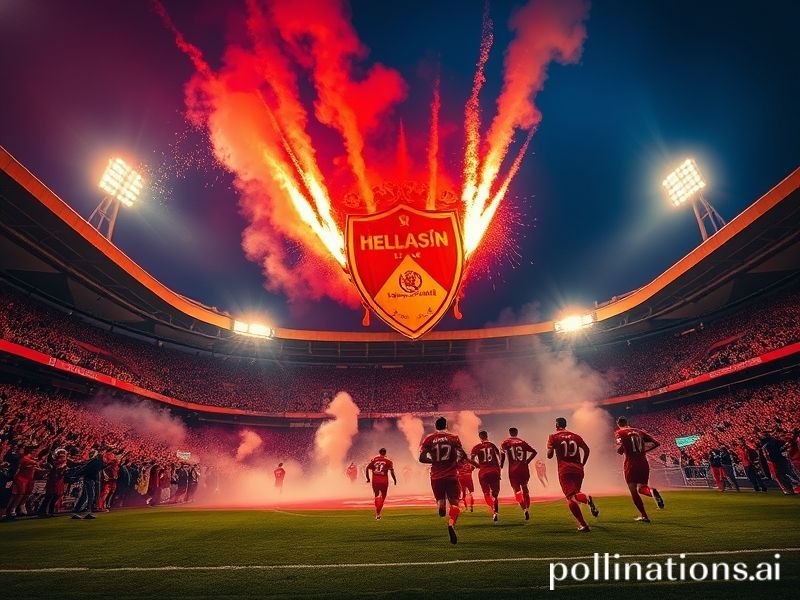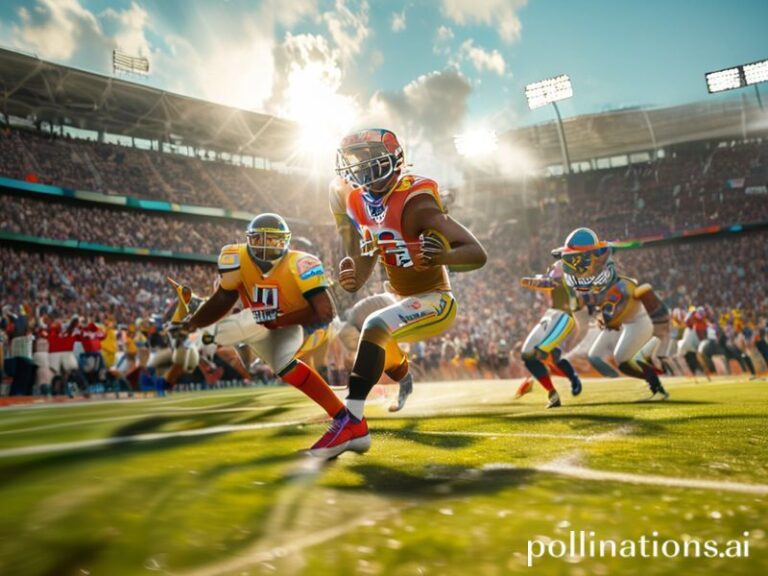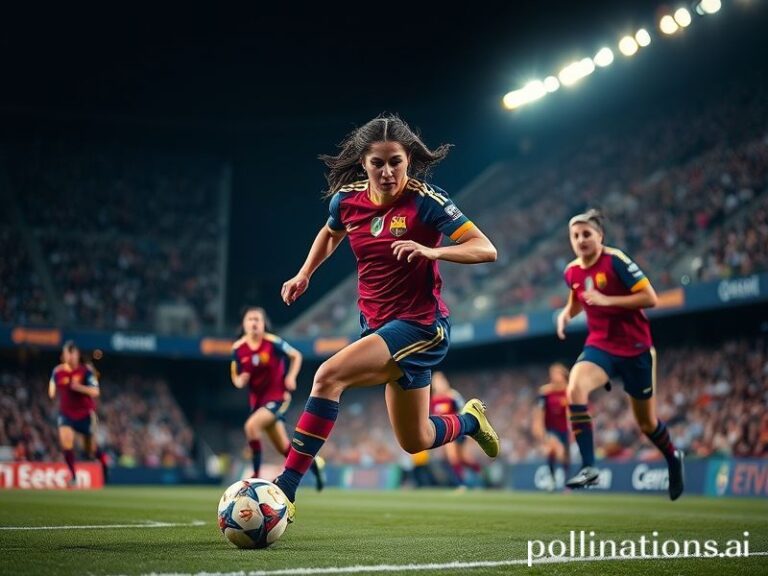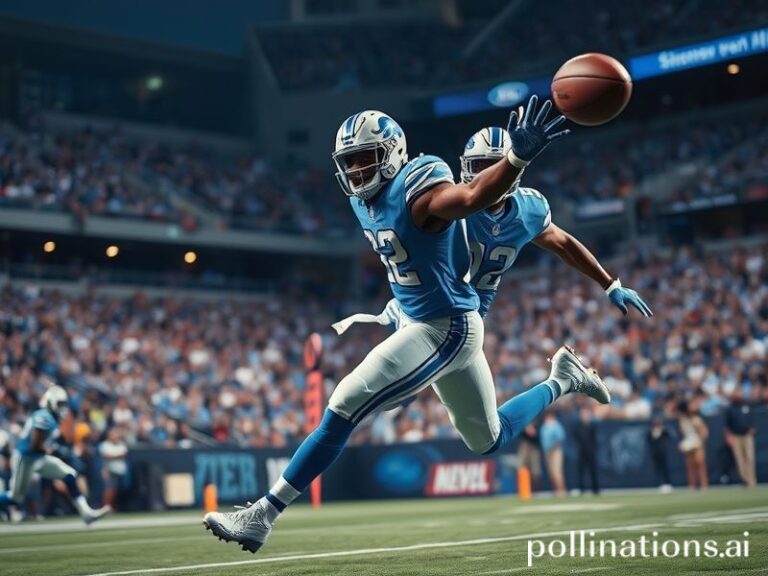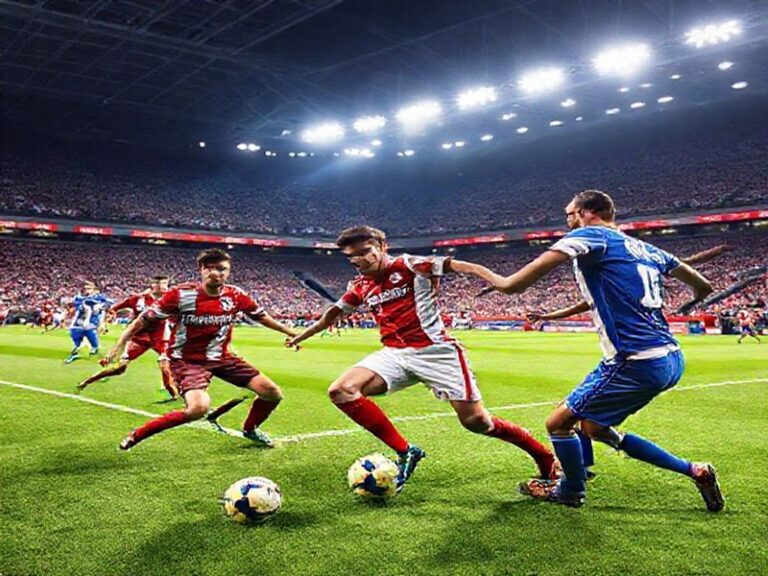Galatasaray: Istanbul’s Red-and-Yellow Mood Ring Now Broadcasting Global Anxiety in HD
Galatasaray: The Sultan’s Red-and-Yellow Balloon Drifting Above a Burning Bazaar
By Our Jaded Correspondent in Transit Lounge 3C, IST
Istanbul, that magnificent hinge between Europe and whatever Europe thinks Asia still is, has long specialized in exporting moods rather than mere products—melancholy, menace, magnificence. Galatasaray Football Club is the city’s most portable mood: equal parts Ottoman swagger and post-modern anxiety, bottled in a shade of red that looks suspiciously like dried blood under stadium lights. To the outside world, the club is no longer just a Turkish team; it is a geopolitical mood ring, flickering crimson whenever global markets hiccup, populists rise, or Netflix scouts yet another Ottoman harem reboot.
Begin with the obvious: Galatasaray’s 2023-24 season is being watched from boardrooms in Doha, trading floors in London, and bored living rooms in Buenos Aires where fans still remember Claudio Taffarel’s ponytail flying like a surrender flag. Qatar’s renewed sponsorship—rumored to be north of €150 million across three seasons—means the club now functions as a soft-power satellite orbiting the Gulf’s wider charm offensive. Every time Mauro Icardi drifts past a hapless Süper Lig full-back, an algorithm somewhere in Riyadh recalculates brand-engagement KPIs. The beautiful game? More like the beautifully itemized game.
Meanwhile, UEFA’s Financial Fair Play regulations hover overhead like a stern librarian who’s noticed someone smuggling kebab grease onto the rare manuscripts. Galatasaray’s accountants—those unsung poets of deferred amortization—have become adept at the sort of creative bookkeeping normally reserved for crypto startups run by teenagers in hoodies. The result is a squad that can field a Champions League bench worth more than Moldova’s annual defense budget, yet still posts a profit thinner than the baklava at an airport kiosk.
But let us zoom out, as foreign correspondents are contractually obligated to do. Galatasaray’s global footprint is no longer measured merely in silverware—though the 2000 UEFA Cup still gleams like a cursed relic in the club museum—but in digital subcultures. Indonesian teenagers debate 4-2-3-1 formations on TikTok using Galatasaray emoji; Scandinavian hipsters pay €85 for “vintage” 1999 shirts that were, in fact, manufactured last Tuesday in a sweatshop whose address is politely unlisted. The club’s Twitter account recently passed eight million followers, a number roughly equal to the population of Switzerland, minus the tax-evading gnomes.
Back on the Bosporus, politics remains the uninvited uncle at every wedding. President Erdoğan, himself a semi-professional footballer in his youth (we all cope differently), has been photographed wearing the club’s scarf with the practiced enthusiasm of a man who once banned Twitter nationwide. Opposition mayor Ekrem İmamoğlu, meanwhile, courts the same fan base with promises of a new metro line to Türk Telekom Stadium, a structure whose acoustics can reportedly induce tinnitus in visiting goalkeepers and existential dread in visiting auditors.
And then there is the ultras: the Çarşı group, equal parts Greenpeace and Fight Club, who once threatened to “unplug the Bosphorus” during the Gezi protests. Their graffiti now appears in Berlin, Athens, even Gaza, a reminder that football fandom can metastasize into ideology when unemployment stays above 25 percent. Watching them choreograph a tifo that reads “CAPITALISM IS OFFSIDE” while sponsored by a state-run bank is the kind of cognitive dissonance that keeps sociologists gainfully employed.
So what does Galatasaray mean, really, to those of us circling above the planet in pressurized aluminum tubes, nursing miniature merlots and wondering whether democracy is merely a phase, like fidget spinners? It means that even as the world fractures into algorithmic echo chambers, a Turkish football club can still manufacture shared delusions at scale. It means that soft power now comes in aerosol form: a red mist sprayed across global screens, masking the faint smell of debt, diaspora, and desperation.
In the end, Galatasaray is less a sports franchise than a floating referendum on how much spectacle we need to forget how little we trust the scoreboard. And as another Champions League anthem begins—its corporate hymn tuned to the key of impending financial apocalypse—I raise my plastic cup to the sky like everyone else: not in hope, but in recognition that the fix is in, the lights are dazzling, and the balloon, for now, is still aloft.

